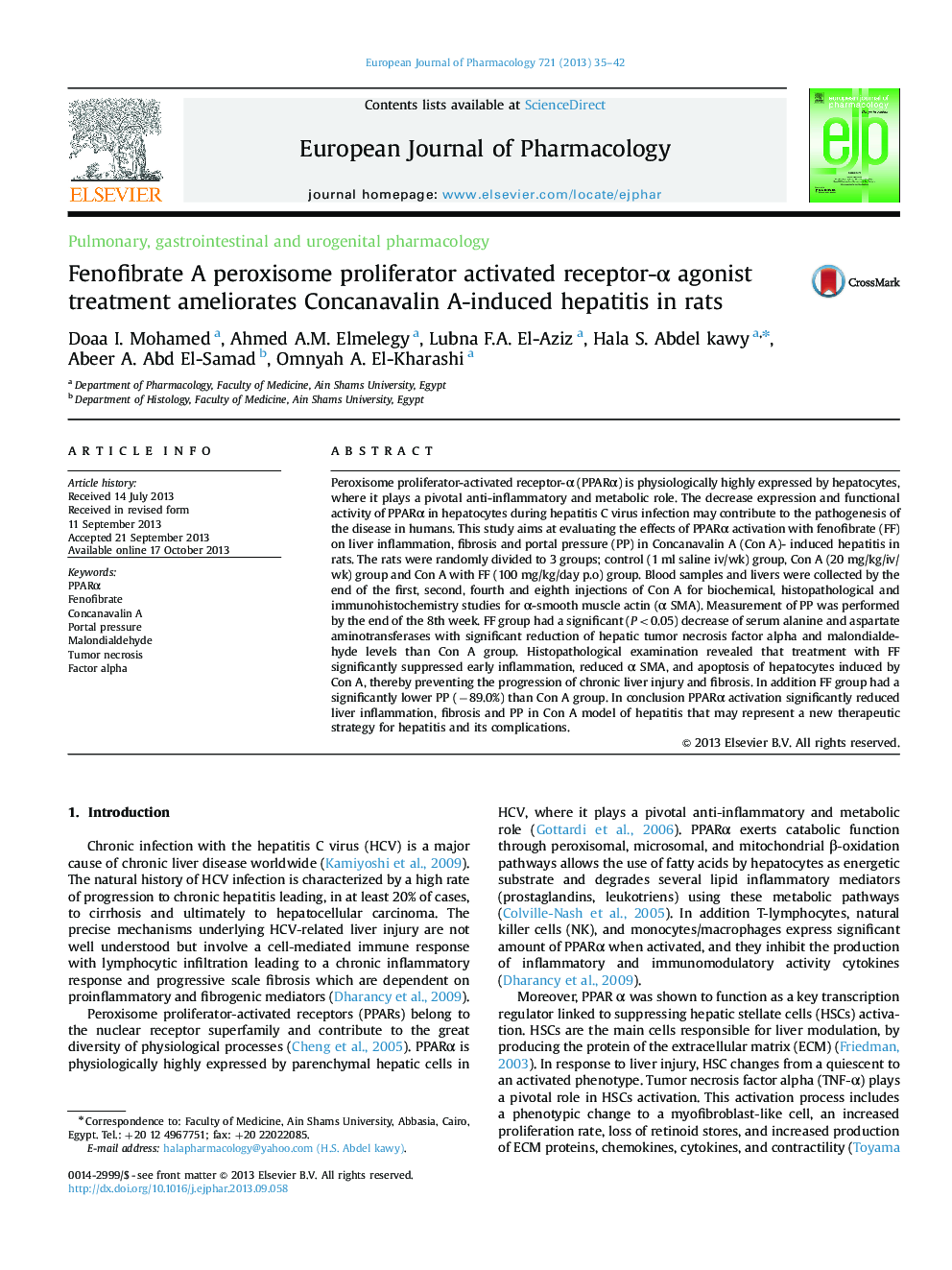| Article ID | Journal | Published Year | Pages | File Type |
|---|---|---|---|---|
| 5828187 | European Journal of Pharmacology | 2013 | 8 Pages |
Abstract
Peroxisome proliferator-activated receptor-α (PPARα) is physiologically highly expressed by hepatocytes, where it plays a pivotal anti-inflammatory and metabolic role. The decrease expression and functional activity of PPARα in hepatocytes during hepatitis C virus infection may contribute to the pathogenesis of the disease in humans. This study aims at evaluating the effects of PPARα activation with fenofibrate (FF) on liver inflammation, fibrosis and portal pressure (PP) in Concanavalin A (Con A)- induced hepatitis in rats. The rats were randomly divided to 3 groups; control (1 ml saline iv/wk) group, Con A (20 mg/kg/iv/wk) group and Con A with FF (100 mg/kg/day p.o) group. Blood samples and livers were collected by the end of the first, second, fourth and eighth injections of Con A for biochemical, histopathological and immunohistochemistry studies for α-smooth muscle actin (α SMA). Measurement of PP was performed by the end of the 8th week. FF group had a significant (P<0.05) decrease of serum alanine and aspartate aminotransferases with significant reduction of hepatic tumor necrosis factor alpha and malondialdehyde levels than Con A group. Histopathological examination revealed that treatment with FF significantly suppressed early inflammation, reduced α SMA, and apoptosis of hepatocytes induced by Con A, thereby preventing the progression of chronic liver injury and fibrosis. In addition FF group had a significantly lower PP (â89.0%) than Con A group. In conclusion PPARα activation significantly reduced liver inflammation, fibrosis and PP in Con A model of hepatitis that may represent a new therapeutic strategy for hepatitis and its complications.
Related Topics
Life Sciences
Neuroscience
Cellular and Molecular Neuroscience
Authors
Doaa I. Mohamed, Ahmed A.M. Elmelegy, Lubna F.A. El-Aziz, Hala S. Abdel kawy, Abeer A. Abd El-Samad, Omnyah A. El-Kharashi,
